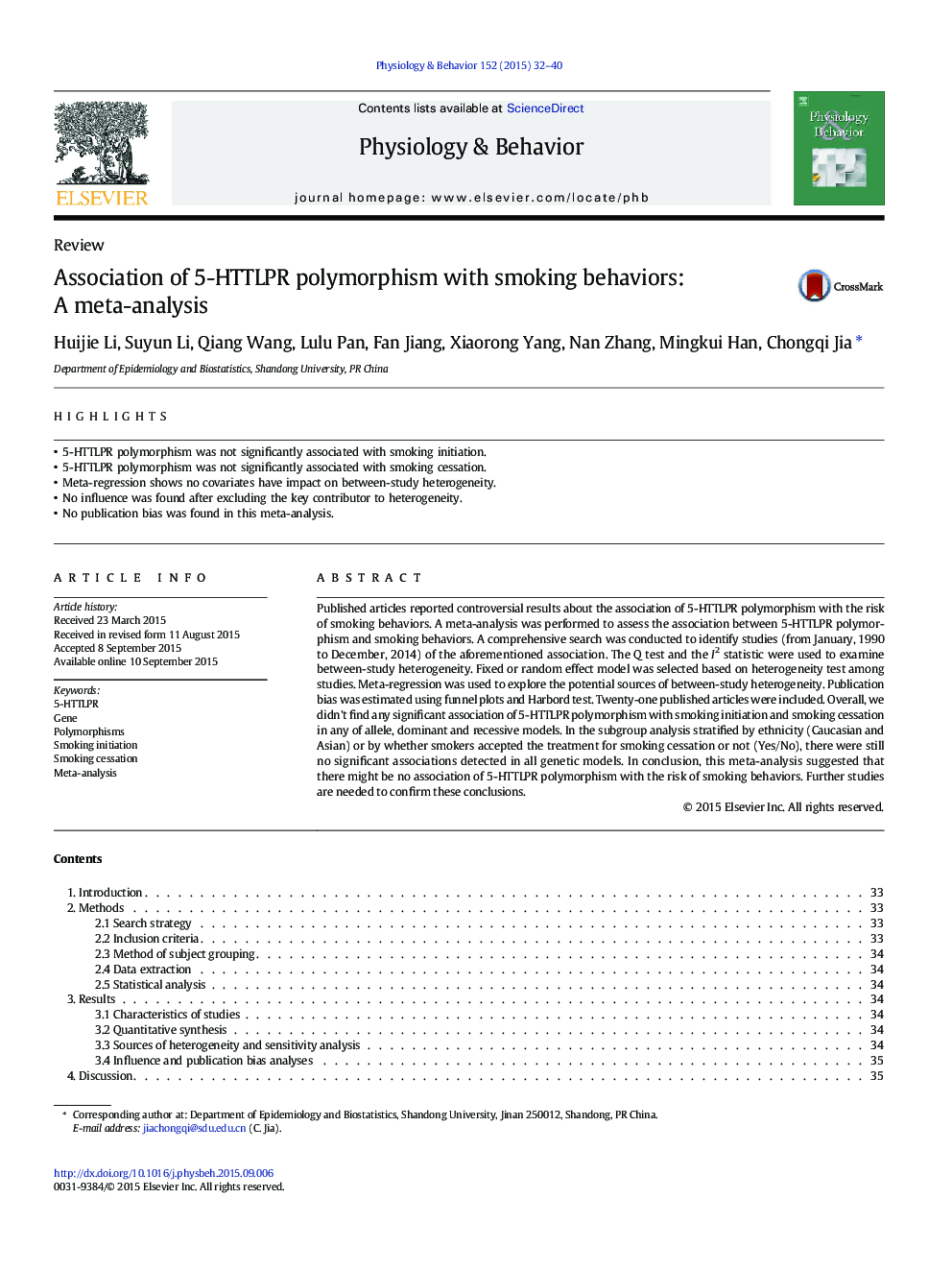| Article ID | Journal | Published Year | Pages | File Type |
|---|---|---|---|---|
| 5923022 | Physiology & Behavior | 2015 | 9 Pages |
â¢5-HTTLPR polymorphism was not significantly associated with smoking initiation.â¢5-HTTLPR polymorphism was not significantly associated with smoking cessation.â¢Meta-regression shows no covariates have impact on between-study heterogeneity.â¢No influence was found after excluding the key contributor to heterogeneity.â¢No publication bias was found in this meta-analysis.
Published articles reported controversial results about the association of 5-HTTLPR polymorphism with the risk of smoking behaviors. A meta-analysis was performed to assess the association between 5-HTTLPR polymorphism and smoking behaviors. A comprehensive search was conducted to identify studies (from January, 1990 to December, 2014) of the aforementioned association. The Q test and the I2 statistic were used to examine between-study heterogeneity. Fixed or random effect model was selected based on heterogeneity test among studies. Meta-regression was used to explore the potential sources of between-study heterogeneity. Publication bias was estimated using funnel plots and Harbord test. Twenty-one published articles were included. Overall, we didn't find any significant association of 5-HTTLPR polymorphism with smoking initiation and smoking cessation in any of allele, dominant and recessive models. In the subgroup analysis stratified by ethnicity (Caucasian and Asian) or by whether smokers accepted the treatment for smoking cessation or not (Yes/No), there were still no significant associations detected in all genetic models. In conclusion, this meta-analysis suggested that there might be no association of 5-HTTLPR polymorphism with the risk of smoking behaviors. Further studies are needed to confirm these conclusions.
